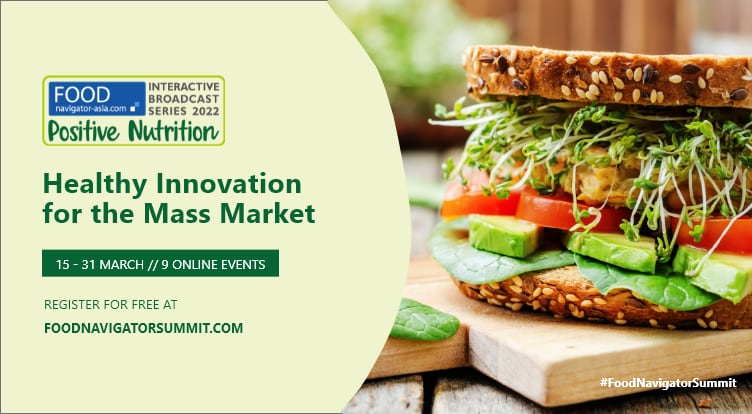Aranols was the keynote speaker at the opening of our Positive Nutrition Interactive Broadcast Series, which can be viewed on-demand here.
He argued that innovative, healthy food should be accessible and affordable to the larger community.
“We need to be able to create healthy formulation and available nutrition for consumers from all walks of life.
“In the post-pandemic world, we believe consumers will continue to seek value-for-money purchases.
“The core needs for quality, health and safety will remain,” he said.
One key taste and formulation challenge faced by Nestle stemmed from its foray into the plant-based meat market, where it had to balance creating healthy formulations while ironing out technical challenges.
He detailed that these had to be overcome both by manufacturing advances and collaboration with suppliers.
Aranols also highlighted the firm’s enzyme-based technology that could reduce sugar and convert complex sugars into fibre.
The MNC intends to apply this technology on more of its products, citing examples such as Milo, Nescafe and Maggi.
Rounding up his presentation, Aranols explained that re-formulation, including reducing sugar and salt, would remain a priority for the firm.
“Nestle will continue to leverage its global scale, resources and expertise to contribute to an evolved, healthier future,” he said, adding how on-pack marketing was crucial to drive home health benefits to consumers.
For example, its Koko Krunch box explains that the flakes are now made with whole grain and contain fat-reduced cocoa.
Claim game
These sentiments were also shared by Ingredion and Cargill, the Diamond sponsors of the broadcast.
Ingredion’s APAC director for innovation, Ai Tsing Tan, said on-pack claims such as ‘organic’ and ‘gluten-free’ were increasingly sought after.
She also said that millennials and Gen Z consumers were ready and willing to pay for healthier choices.
Again, the challenges of searching for the right formulation was raised, but she suggested that localisation was a solution, citing how products were increasingly being tailored to the region.
“Texture is a huge issue. Country A may like a certain firmness, but the same firmness may not work for country B.
“Hence, we now have sensory tools and vocabulary to customise our offerings.
“It is indeed an exciting time, especially for the APAC region,” she said.
Cargill also stressed that that indulgent food could still provide healthier alternatives.
The firm's technical category manager Jodell Jiang explained how some of its plant-based milk innovations were meeting the needs of consumers who are unwilling to compromise on taste, mouthfeel and texture.
Traditionally, plant proteins can lack the creamy texture and structure that dairy can provide in terms of foamability and stability, especially when making latte art.
Plant milk is also less soluble and prone to sedimentation, she added.
“We understand that consumer behaviours do not change overnight.
“But consumers in APAC are choosing healthy, plant-based beverages like soy,” she said.
Education and encouragement
The three presentations were followed by a 45-minute panel discussion moderated by FoodNavigator-Asia Editor Pearly Neo.
Besides Tan and Jiang, guests included co-founder of NANKA Ahmad Syafik Jaafar; founder of Marvelous Foods Christiana Zhu; and founder of AF Drinks Lisa King.
The crux of the discussion was centred on the growing demand for plant-based and healthier food alternatives, but it was agreed that consumers also needed to be educated about the taste, texture and formulation of products as well as being encouraged to repeat their purchases.
Dr Jiang highlighted some successful marketing strategies while King discussed the benefits of particular formulation approaches.
“We can add to our products, but not subtract from a current variation (in the market).
“Subtraction will make you lose factors like mouthfeel,” said King.
Ahmad Syafik also emphasised the role of positioning to win the market while Tan added that creating new categories of foods rich in fibre would align with the lifestyles of Gen Zs and Gen Alphas in eight to 10 years.
“These generations would be very digitally-connected; hence packaging and ingredients must fit their lifestyles, health and weight management objectives.
“For the older generations, I see a trend for healthy ageing products and holistic health gaining importance,” said Tan.
Final edition
The APAC Positive Nutrition 2022 series will conclude on March 29 when we will shine the spotlight on Better-For-You-Beverages, with a keynote presentation from Frucor Suntory’s Lesley Stevenson.
Register for free here.


